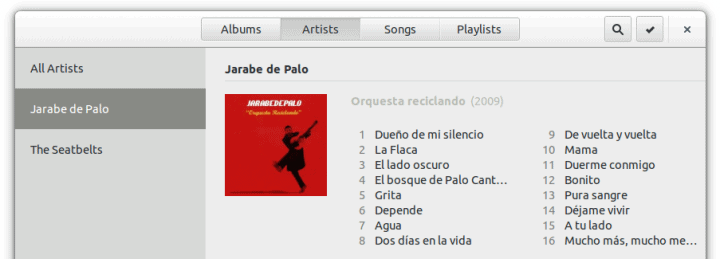How to: Get people to switch to Linux
April 30th, 2014 by Luis Augusto Fretes Cuevas
I’ve been using Linux for over 10 years now and I’ve managed to make more than a few user switch. My strategy is rather simple. I don’t rely on a checklist, because I don’t propose to them to switch to Linux entirely, I don’t even tell they switch to Linux. Here’s what I believe are the steps to success. Windows is your best friend Seriously. It will eventually drive your friends, family and acquaintances nuts. Since you’re likely the free tech support of all your inner circle, you don’t need to even pay attention to catch them in their darkest… Continue Reading
More or less features?
April 30th, 2014 by Luis Augusto Fretes Cuevas
Many projects and software developers want their applications to be aesthetically pleasing and simple to use. Both imply uncluttered interfaces. Others want their application to be as useful as possible. These two are good goals that most software developers should include in their check-lists. The problem starts when developers and designers confront with the how to accomplish it. Bad reasoning type 1: Less is more We want our program to be simple to use and one less feature means less clutter. If there’s some function that 90% of users don’t actually use then is better to remove it. The problem with… Continue Reading
Review: GNOME 3.12
April 29th, 2014 by Luis Augusto Fretes Cuevas
For a brief period of time GNOME was the princess of desktop environments. The most popular distribution out there, Ubuntu, used it. Distributions perceived as being very professional such as those from Novell or Red Hat, used it. Even the “alternative” distributions like Linux Mint used it. Later with KDE making the transition from 3 to 4, GNOME 2 solidified its position as the darling of desktop environments. And then something happened. Canonical decided to create its own desktop environment, Unity. Linux Mint switched to Mate, a GNOME 2 fork, then they forked the most recent version of GNOME to… Continue Reading
The myth of Linux tweaking
April 28th, 2014 by Dedoimedo
If you have been a Linux user for some time now, then you must have come across more than one article telling you how to improve the speed and responsiveness and whatnot of your Linux distribution at home. In fact, the Web is awash with guides and tips on tuning your system to the max, offering the promise of greatness to those bold enough to redirect values into /proc. The reason why we are here, today, we few, we happy few, we band of geeks, is to discuss this delicate topic, or rather, to debunk it. Because Linux desktop tweaking… Continue Reading
Unity a year later
April 24th, 2014 by Luis Augusto Fretes Cuevas
A year ago I wrote an article about the different directions taken by Unity and KDE respectively. Beyond describing them, I took a very firm stand: Canonical made changes for the sake of change and it was an inferior experience (KDE got its fair share of criticism too). A year later with a shiny new LTS release, I thought it was time to give Unity another chance. Obviously Ubuntu is more than Unity but is the main differentiator between it and other Ubuntu-based distributions. I will split the review in three cliché sections: The good, The Bad and The ugly…. Continue Reading
Windows user, wanna try Linux? Checklist.
April 23rd, 2014 by Dedoimedo
Are you a Windows user who has heard of Linux and is considering trying this new operating system? Very good. You have made a very wise decision. Not the test itself, although it may be a pleasant experience, but the very fact that you have opened up your mind to new possibilities. That in itself is worth its weight in gold. But before you do anything, let me dampen your mojo a little. Your Linux experience will be inversely proportional to your expectations, as well as your level of preparedness. So, if you want to test Linux, maybe even move… Continue Reading
Free software and governments
April 21st, 2014 by Luis Augusto Fretes Cuevas
Is proprietary software ethical? This is a hard question to tackle, one that I may attempt to answer in the future, for the time being I will content myself with trying to answer the much weaker question of what kind of software the government should use, i.e. Is the use of proprietary software by the government unethical?. However, it’s worth noting that the nature of the question is similar but differs in an important way: The general problem places the burden of moral responsibility on the developer, the second puts the burden on a specific kind of buyer. How do… Continue Reading







